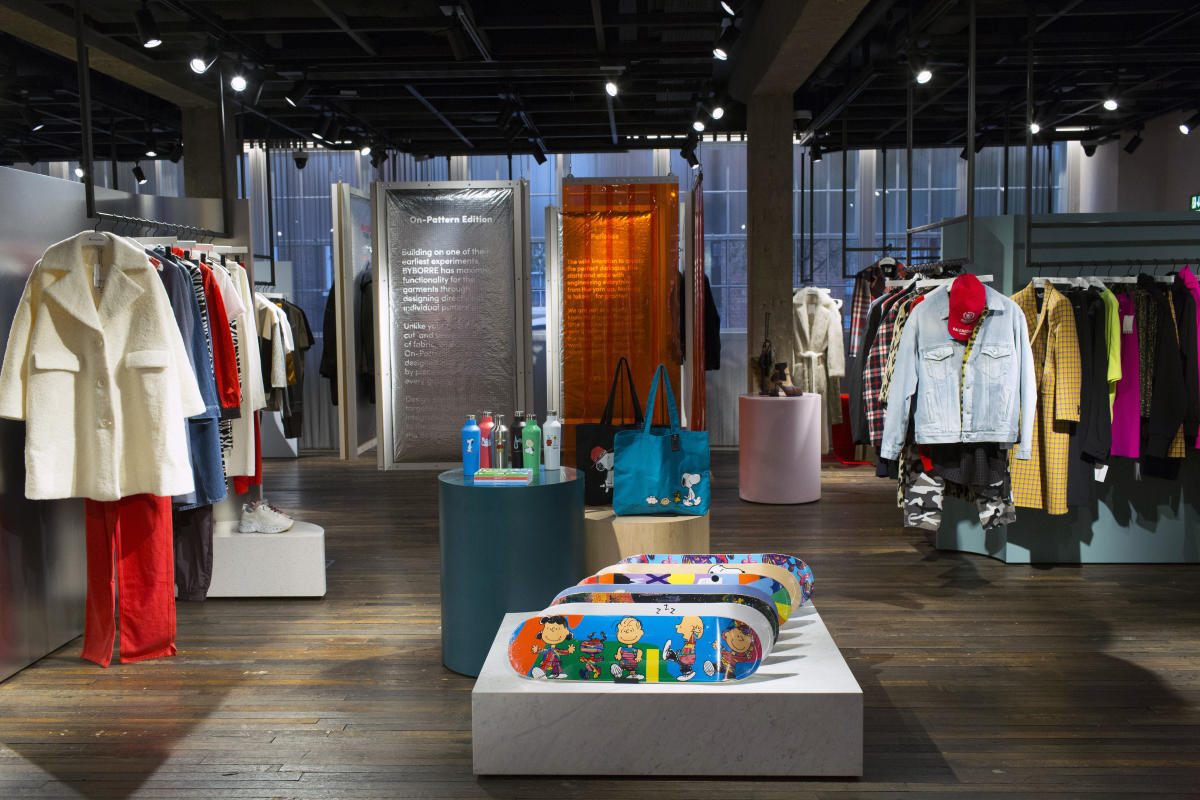IMO, you''re right to think of FF's and
TRR's problems as completely separate but in the end I think they tie together by risky over-expansion due to watching and reacting solely on data and not paying attention to humans (the invariable variable).
FF's have been overconfidence and overstretching. FF was never a retail company (online or B&M) it was an agency, a middle-business for other retailers. FF have no idea of their partners' retail data, they don't have to worry manufacture, quality control, mark-ups or downs, overstock or what to do about returns, and yet they call themselves retail experts and called new companies 'Luxury New Retail' and Platform Solutions and offer Replatform, E-concessions and inshore technology. FF is a tech company that cloaks itself as a luxury brand and that's why they needed Browns Fashion IMO, a niche concept store that supported up and coming and established British/World high-fashion for early adopters before designers went big-time (but strangely BF now models itself more as an LA lux indie boutique experience: expensive, international casual with a 'experiential' room). I can totally see why they bought Browns (Fashion).
I don't think Browns Fashion (also online and B&M) was a mistake, because I can see how they wanted their own multi-brand brand. FF (management) don't know about luxury retail, the model is more like like Ebay, they skim off the surface and provide a platform which
looks like a shop - but it's not. They have no control over stock, the way it's packaged to be shipped (therefore lack of consistently). Browns run their own mini, multi-brand universe, and they can provide plenty of quantitive data acting as a sample for luxury in general and qualitative data from clients/staff.
Other buys (Off White license and Stadium Goods) are less understandable unless they were trying to build another global luxury parent company and want a slice of the sportswear pie (which all lux companies are doing in their own ways) but FF already had Swear (sneakers/trainers) so they already knew how fickle the sportswear scene is (sneaker-heads et al).
The buy-in to YNAP seemed like somewhere to park money they may not have had. YOOX is not doing well either! Single brands are not selling to them and third party stockists are not allowed to so they have to supplement with Cos and other middle market brands as well as buy new
seriously-old stock (as in not last year's but 10 year's). NaP and Mr.P already has Outnet, but stock is seriously stale and mostly outlaying sizes. Millennials fuelled the digital growth of luxury but that's probably because they had no instant access to these 'magical' brands before. These companies also look like they're not riding high to the casual observer (check out the number of seasonal discounts and specials) I think a lot of people are shopped-out or luxury immune - and that's why luxury was hoping their growth will come from Gen Z, and hence perhaps the expansion into sportswear, lux outlets, pre-loved and grey market shopping, but there's no 'magic' in luxury names for Gen Z...another topic.
Did you know FF were after Conde de Nast at one point? Does a duck think he needs to buy a kennel? CdN is a shadow of its glory years but FF knows nothing about publishing. At least Kering, LVMH, Richemont and
Prada Group etc know what they're good at. Good luck to Estée Lauder with Tom Ford, Balmain's haircare and Ferrari RTW catwalks.
FF Gold Access staff know about luxury retail - but that's because they were trained by other luxury retail companies. The first thing they are told to do is bring their VIP clients with them (recruit). One only needs to spend £10K a year for Gold Access, but the rewards are to buy more stuff or invites to a few pop-ups. The only way someone may prefer Gold FF over, say VIP/VIC Dior,
Gucci or Celine is if they buy across ranges, brands and maybe for other family members too, and don't care about the single brand's exclusive products or services that being a VIP bring. FF tried to create a loyalty programme without understanding about loyalty.
TRR already have AI, they also have humans but they've still been caught out with fakes. If people think they have a fake they've bought from TRR, guess what, they're told to return it for a
reauthentication (by TRR)

I'm sure that inspires confidence (as in not).
The pre-loved market has been the hedge-fund manager's favourite tip for years - mostly because they have no idea about logistics, the expectations of luxury products/service/experience, they only know only money (figures). Tipping less commercially exploited markets the finance world has no idea about is dangerous because it's allowed companies to borrow too much money and inflated share prices (and predictions). The world loves a hot tip - until it blows-up 🚀 Like FF, TRR had an expand now and think later mentality. There are some good online preloved sites some run on the agency model and some buy-in, but they need to a very tight ship and be realistic about growth. Businesses are not (just) run on numbers they're built round knowledgable, experienced people. That's what sustainability is about not just the green washing BS companies trot-out.

 www.yahoo.com
www.yahoo.com

 I'm sure that inspires confidence (as in not).
I'm sure that inspires confidence (as in not).